If you’ve ever waited too long to buy concert tickets and ended up watching your favorite artist’s show on a screen instead of in person, you know how brutal it can be. The rush, the bots, the hidden fees - it’s a minefield. But not all ticket sites are created equal. Some are reliable, fair, and fast. Others? They’re designed to squeeze every last dollar out of you. So what’s the best site to purchase concert tickets in 2025? It depends on what you’re looking for - lowest price, guaranteed authenticity, or the easiest experience. Let’s cut through the noise.
Official Venues and Artists’ Websites
Always check the venue’s official site first - whether it’s Spark Arena in Auckland, Vector Arena in Wellington, or the Sydney Opera House. These sites sell tickets directly from the promoter or artist’s team. No resellers. No bots. No inflated prices. If the show is sold out on the official site, you’ll see a verified resale option, often powered by Ticketmaster or Live Nation’s Fan-to-Fan platform. These resale tickets are usually marked as "Verified Resale" and come with a price cap to prevent scalping. In 2024, over 68% of sold-out shows in New Zealand and Australia used this system, according to the Live Performance Australia report. It’s the safest way to get in.
Live Nation and Ticketmaster: The Giants
Live Nation and Ticketmaster dominate the market, especially for big-name acts. If you’re chasing Taylor Swift, Ed Sheeran, or a local legend like Lorde, you’re likely ending up here. Their system isn’t perfect - pre-sales, waitlists, and CAPTCHAs can feel like a video game - but they’ve improved. In 2025, they rolled out a new anti-bot system called "TicketGuardian" that blocks over 95% of automated purchases. Plus, their app now lets you lock in your seat selection in under 60 seconds. The downside? Fees. A $120 ticket can easily become $160 after service charges, processing fees, and delivery costs. But here’s the trick: always select "Electronic Delivery" instead of mail. It cuts $8-$15 off your total.
StubHub: The Resale Powerhouse
StubHub is the go-to for last-minute tickets or sold-out shows. It’s not the cheapest, but it’s the most reliable resale platform. What makes StubHub stand out? Their Buyer Guarantee. If your ticket doesn’t work, they refund you - no questions asked. They also show you the original face value next to the resale price, so you know if you’re overpaying. In 2025, StubHub introduced a "Fair Price" badge that highlights listings within 15% of the average resale price. For a Coldplay show in Melbourne, you might see tickets listed at $250, but the "Fair Price" range is $180-$210. Stick to that range. Avoid listings with "Instant Download" marked as "Seller’s Choice" - those are often seat-switches or bad seats.
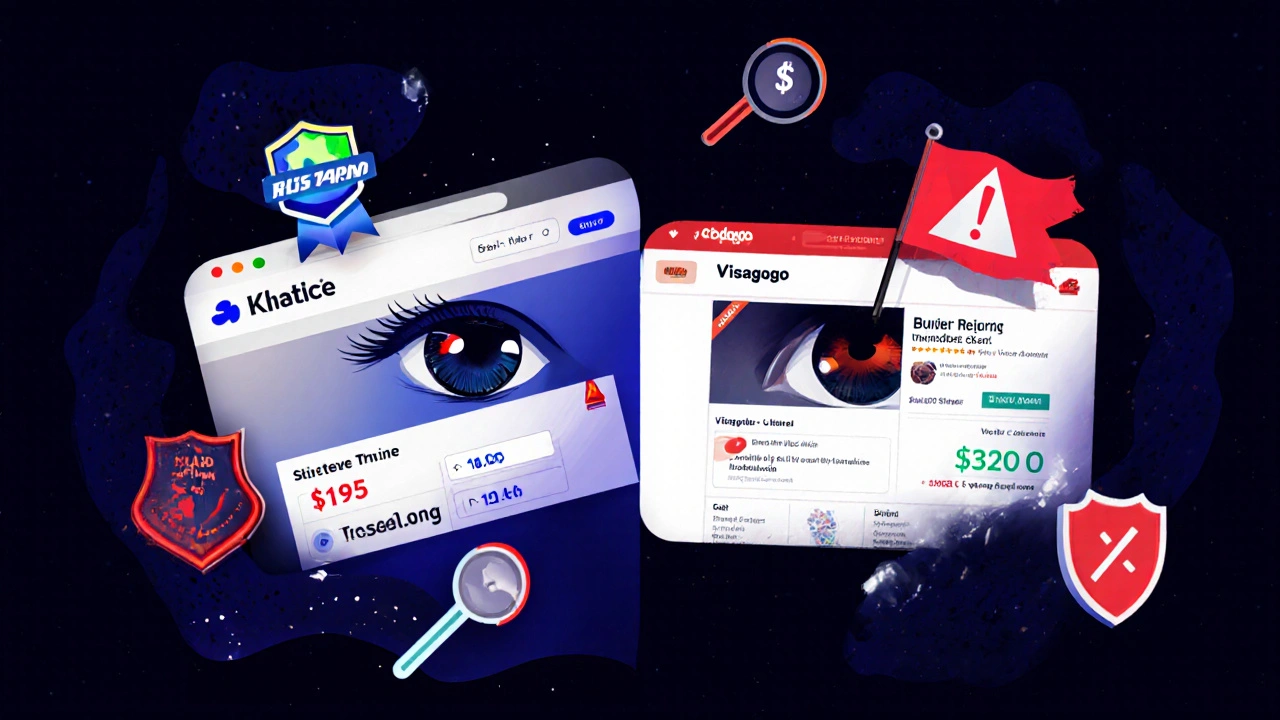
Viagogo: Proceed With Caution
Viagogo has a reputation for aggressive pricing and confusing interfaces. They’ve cleaned up some of their worst practices since 2022, but red flags still pop up. Their default view shows the highest-priced tickets first. You have to manually sort by "Lowest Price." Also, their customer service is slow. In 2024, the Australian Competition and Consumer Commission fined them $1.2 million for misleading pricing. If you use Viagogo, always check the seat map before buying. Never buy without seeing the exact row and section. And never pay more than 50% above face value unless it’s a rare, one-off show.
Bandcamp and Artist Direct: The Indie Advantage
If you’re into smaller, local, or indie acts, skip the big platforms. Many independent artists sell tickets directly through Bandcamp or their own websites. You’ll pay face value, no fees, and sometimes get a digital download or merch bundle included. For example, New Zealand’s Fat Freddy’s Drop sold 80% of their 2025 tour tickets through their own site - no third-party markup. You’ll find these links on the artist’s Instagram, Twitter, or official website. Set up alerts on their mailing list. These shows often sell out in minutes, but you’re not fighting bots - just real fans.
What to Avoid
Stay away from random Facebook groups, Craigslist listings, or "ticket brokers" on Telegram. These aren’t regulated. You could pay $300 for a fake QR code that doesn’t scan. Even some "verified" resale sites outside the U.S. and Australia lack consumer protections. Stick to platforms that:
- Offer a buyer guarantee
- Show the original face value
- Let you see the exact seat location
- Accept secure payment (credit card, PayPal)
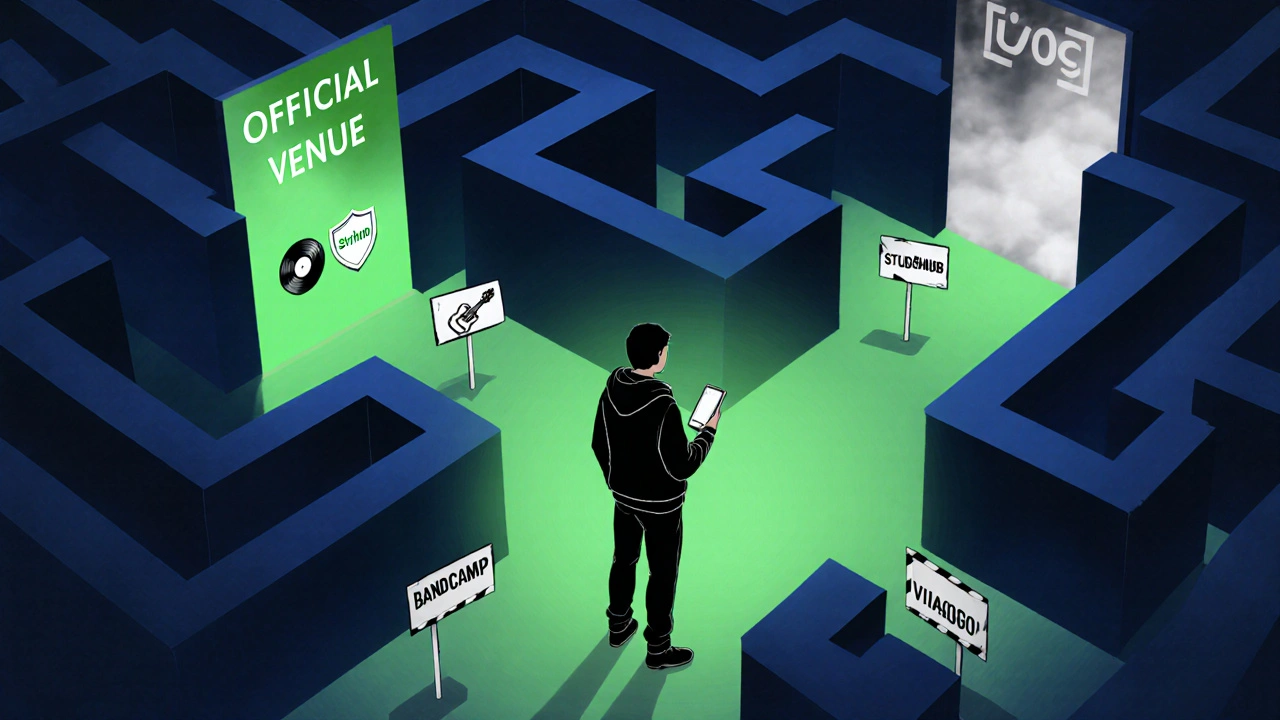
Pro Tips for Getting Tickets Without the Stress
- Set up alerts on official sites - not just email, but app notifications. They go off 10 minutes before presales.
- Use two devices. One for the website, one for the app. Sometimes one loads faster.
- Have your payment info saved. No typing during the 90-second window.
- Check for local fan club presales. Many bands give priority to registered fans.
- Wait until 48 hours before the show. Sometimes last-minute returns pop up at face value.
For New Zealanders, the best time to buy is Tuesday afternoon - that’s when most tickets drop after the weekend rush. Avoid weekends entirely. The bots are out in full force.
Is There a Best Overall Site?
Yes - but it’s not one site. It’s a strategy. For big international acts: Live Nation or Ticketmaster. For resale: StubHub. For indie shows: Bandcamp or artist websites. For peace of mind: Official venue sites. The cheapest isn’t always the best. The safest is. And in 2025, safety matters more than ever.
Are concert tickets cheaper on the day of the show?
Sometimes. A small number of tickets are returned by people who can’t attend, and those often appear on official resale platforms 48 hours before the show. But don’t count on it - popular shows rarely have last-minute openings. If you’re waiting for a discount, you’re more likely to miss out entirely.
Can I get scammed buying concert tickets online?
Absolutely. Fake tickets are common on unregulated platforms. Scammers use fake QR codes, copied PDFs, or even sell the same ticket to multiple people. Always use sites with a buyer guarantee. If the price seems too good to be true - like $50 for a $200 ticket - it’s a trap.
What’s the difference between primary and secondary ticket markets?
The primary market is where tickets are sold first - by the venue or promoter. These are face value. The secondary market is where people resell tickets after buying them - like StubHub or Ticketmaster’s resale section. Prices there can be higher or lower, depending on demand. Stick to verified resale platforms to avoid fraud.
Do ticket bots still work in 2025?
They’re much harder to use now. Major platforms like Ticketmaster and Live Nation use AI-driven bot detection that blocks over 95% of automated purchases. Even if a bot gets through, the system often limits purchases to one or two tickets per account. Your best bet is still to be ready when presales open.
Are there any apps that help me find the best deal?
Yes. Apps like SeatGeek and TickPick compare prices across multiple resale sites and show you the best value. SeatGeek’s "Deal Score" ranks tickets by price, location, and reliability. But don’t rely on them alone - always double-check the seller and delivery method before buying.
Next Steps: What to Do Right Now
Open your phone. Go to the official website of the artist or venue you want to see. Sign up for their newsletter. Turn on notifications. Bookmark the ticket page. Set a reminder for the presale date - even if it’s a week away. Don’t wait until the last minute. The best tickets go fast. The best deals come from being prepared, not lucky.

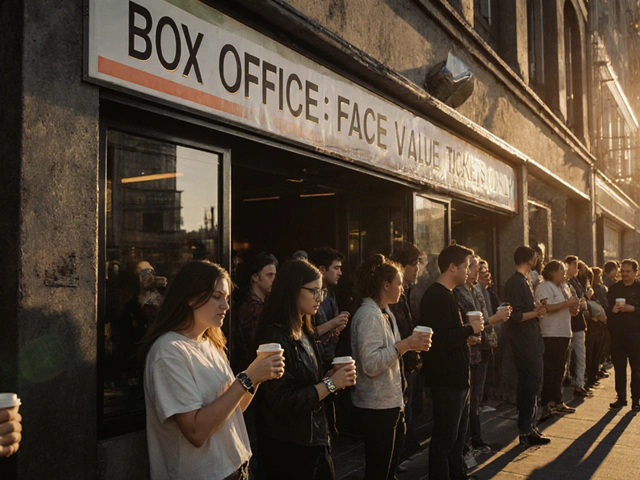
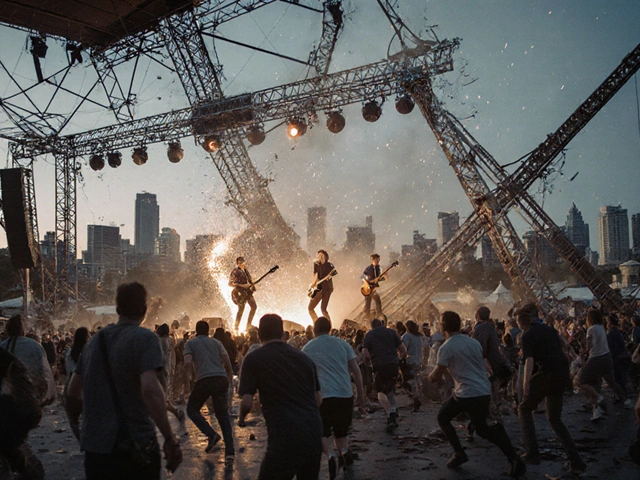
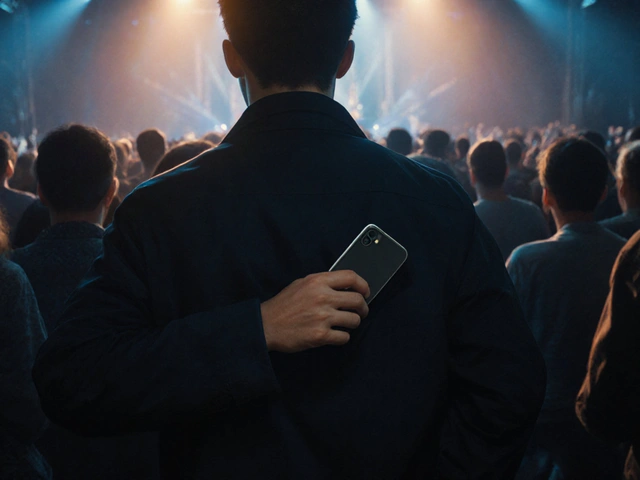
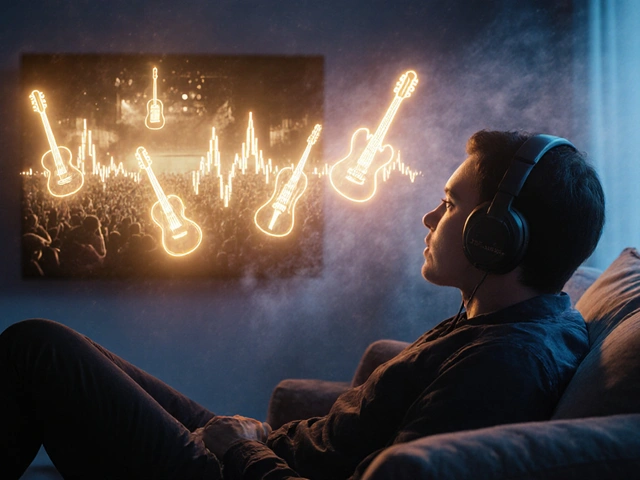

Sally McElroy
The idea that any of these platforms are truly "fair" is a fantasy sold to the gullible. The entire system is rigged from the start-corporate monopolies, algorithmic price gouging, and fake scarcity engineered to make you feel desperate. We call it capitalism, but really it's just emotional extortion dressed up as entertainment. You don't buy tickets-you surrender your dignity and your bank account to a machine that doesn't care if you live or die.
Destiny Brumbaugh
StubHub is the only real option unless you wanna wait in line like some caveman. Ticketmaster? Nah. They're owned by the same dudes who run the prison system. I got 3 Coldplay tickets last year for $180 each after fees. Still cheaper than flying to Australia. USA forever.
Sara Escanciano
Viagogo should be illegal. Not just fined-ERADICATED. People think they're getting a deal but they're handing over their identity to scammers who sell the same ticket to 12 people. And don't even get me started on those "verified" resale labels. That's just corporate lipstick on a pig. If you use Viagogo, you deserve to get locked out of the venue and watch the show on your phone in the parking lot.
Elmer Burgos
I just want to see my favorite band without losing my mind. I use the official site first, then StubHub if it's sold out. I save my card info, use two devices, and set alerts. It's not perfect but it works. I used to stress so much until I stopped treating it like a war and more like a chore. You don't need to win-you just need to get in. And hey, if you miss it? There's always next tour. Life's not a livestream.
Jason Townsend
They say bots are blocked but that's a lie. The real bots are the ones running the sites. Ticketmaster, Live Nation-they're all connected. They let a few bots through to create fake scarcity so they can jack up prices. The "Fair Price" badge? That's just marketing. They know exactly how much you'll pay. They've been tracking your searches since you were 14. You think you're outsmarting them? You're the product.
Antwan Holder
I remember the first time I saw my favorite band live. The air smelled like sweat and hope. I cried when the lights went down. Now? I stare at my screen for hours, refreshing, heart pounding like I'm waiting for a kidney transplant. We turned art into auction. We turned joy into a transaction. And the worst part? We still show up. We still pay. We still beg for scraps from the altar of capitalism. We're not fans-we're hostages.
Angelina Jefary
"Verified Resale" is not a phrase. It's a grammatical oxymoron. "Verified" means authenticated, and "resale" implies third-party exploitation. You can't verify something that was never yours to begin with. Also, "face value" is misspelled as "facevalue" in three places in the original post. And "CAPTCHAs" should be capitalized as "Captcha" unless you're referring to the plural form, which you're not. This article is full of errors. How can we trust anything else?
Jennifer Kaiser
I think the real issue isn't the sites-it's the pressure we put on ourselves to be there. We think missing a show means we failed as fans. But what if the show isn't about the ticket? What if it's about the music, the memory, the feeling? I've missed three concerts in the last two years. I watched them live on YouTube. I cried. I sang along. I felt every note. You don't need a barcode to feel something. Sometimes the best concerts are the ones you didn't get to go to-because you learned to let go.
TIARA SUKMA UTAMA
Just buy from artist site. No fees. No stress. Set alert. Done.
Jasmine Oey
Oh honey, if you're still using StubHub, you're basically paying for the privilege of being emotionally manipulated by a website that thinks you're a walking wallet. I only use the official venue site-because I have taste, and I have standards. And yes, I did spend $400 on a Taylor Swift ticket last year. But darling, it wasn't a purchase-it was a spiritual investment. The aura of the experience? Priceless. Also, I got a free signed poster. You can't put a price on that. Or a comma. Or good taste.